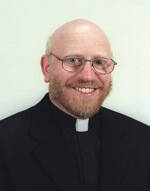In my unending quest to make infants laugh, I have discovered a foolproof strategy. Show a bored or itchy child a creative mismatch that is obviously illogical. Feed a toy car to a teddy bear. Have a serious-looking uncle (that is where I usually come in) distort his face, make funny sounds or, if desperate, stand on his head. Silly juxtapositions guarantee laughter.
In the adult world of things more serious, anomalies and mismatches often produce frustration and alarm, not giggles. I have come close to tears in recent months thinking about two instances where incongruous things come to be mixed together far too tightly for comfort.
The first regrettable case study is about money and politics. Although this is by no means the first election cycle in which the influence of huge spending on political advertisements threatened to distort the campaign, we have truly crossed a threshold. The Supreme Court decision in 2010 in the Citizens United case unleashed a torrent of cash from outside contributors to “super PACs,” which tried mightily to buy this past election.
But the biggest spenders had little to show for their investments this time around. Remarkably, most of the candidates who received the strongest support from super PACs went down to defeat. Post-election media coverage marveled at their losing streak. Perhaps the big donors overplayed their hand and sparked a backlash, as the electorate appears to have resented the barrage of negative ads. Exit polls suggest that Americans consulted primarily their own policy preferences, rejecting the influence of money and the attention it buys.
That is the conventional reading of the 2012 election, anyway, and we would do well collectively to hope that this interpretation is accurate. Strong voter backlash would send a signal that might deter or alter objectionable tactics of the super wealthy as they seek to influence the political process. If the strategy of flooding the airwaves turns out to be a waste of money, then maybe a more rational politics lies ahead.
But I am not thoroughly convinced that we have indeed turned the corner. Perhaps political operatives like Karl Rove, bankrollers like George Soros and the casino mogul Sheldon Adelson and shadowy organizations like American Crossroads, Priorities USA and the National Rifle Association will merely seek more effective tactics to impose their will through smarter (if not greater) spending.
Stay tuned for the next round of this high-stakes game. Whether or not we have actually reached the limits of money and its influence on politics, this flood of cash is surely corrupting. Any decent society would curb the influence of money on its politics and impose serious regulations on campaign finance, like greater disclosure requirements. Although the Harvard University philosopher Michael Sandel treats more colorful abuses in his new book What Money Can’t Buy: The Moral Limits of Markets, elections and political influence top the list of items that money must never be able to purchase. The power of big money in politics must be restrained.
A second case study comes from Germany and involves church revenue and taxation, two other things that simply do not belong together. The past few months have witnessed a new controversy regarding the longstanding arrangement of the Kirchensteuer, a tax system whereby most revenue for the support of churches and other religioius groups comes from taxes collected by the state.
Among the problematic aspects of this mixing of church and state is that it creates a perverse incentive for believers to renounce their religious affiliation in order to lower their tax liability. In September the German Bishops’ Con-ference reacted to mass defections from the government’s religious registry by announcing that German Catholics who do not pay the tax will be denied access to participation in the sacraments and other aspects of church life.
It is impossible to predict the outcome of this heartbreaking turn of events. Even experts in church-state relations are unsure what would constitute a just policy. But clearly, nobody should have to pay to pray.
In both these cases—the anomalous juxtaposition of money and politics here and of church and state in Germany—contemporary actors are obliged to clean up complex and messy inherited situations. In each case, it is up to us today to stand up for the highest principles and work out reforms that will correct mistakes of the past.









Among the problematic aspects of the US Party system is that it creates incentives for politicians to abandon their theological, philosophical or moral beliefs for 30 pieces of silver. Let's talk of Mitt Romney's "Damascene Conversion" to Pro-Life, and Bob Casey's 100% NARAL approval rating (same with Pascrell D-NJ who was Pro-Life when Mayor of Paterson NJ).